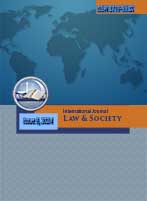The role of the European Parliament and the Council in the formation of the national criminal law policy in the conditions of martial law
Keywords:
European Parliament, European Council, criminal law policy, EU law, violation of sanctionsAbstract
The article examines the role of the European Parliament and the Council in the formation of national criminal law policy under martial law. The author paid attention to the criminalization of such actions as «violation of sanctions» at the national and international levels. Having chosen the European vector of development, Ukraine undertook a number of obligations, including bringing national criminal legislation into line with international and, in particular, European norms. Violation of restrictive measures (sanctions) is a particularly serious crime for which member states must establish criminal liability in their national legislation. The draft Law «On Amendments to the Criminal and Criminal Procedural Codes of Ukraine and other laws regarding the establishment of criminal liability for violation of the legislation on sanctions» does not contradict the Association Agreement and EU law, and the specifics of the establishment of liability for violation of restrictive measures (sanctions) are regulated at the national level . At the same time, regulating this area of legal relations by law, the state must ensure that such a law provides for effective, proportionate and convincing punishment for violation of restrictive measures (sanctions).
The European Council and the European Parliament have completed negotiations on an EU law introducing criminal offenses and penalties for breaching EU sanctions. This directive ensures that those who violate or circumvent EU sanctions will be prosecuted. This is especially important in the context of Russia’s war of aggression against Ukraine.
In the conditions of martial law, a special place in the formation of national criminal law policy belongs to the European Parliament and the Council as subjects of international criminal law policy, whose activities are aimed at establishing peace, human rights and freedoms, and combating crime.


